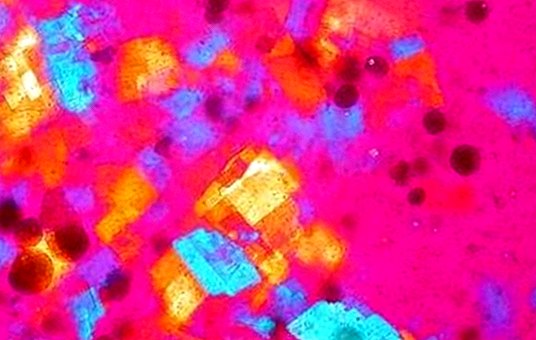Benefits and properties of yogurt
We could consider the yogurt as an indispensable food, which really could not be lacking in a diet as varied and balanced as possible, thanks to the different benefits and nutritional values that it provides. In fact, 100 grams of yogurt provide 180 mg. of calcium, 240 mg. of potassium and 17 mg. of magnesium, in addition to vitamin and B vitamins.
It is a delicious product, which today we can easily find in supermarkets, shops and even herbalists (in their more ecological and dietary versions). It is made from milk fermented by the action of bacteria that convert lactose into lactic acid.

What is yogurt? What it consists of and its history
The yogurt is a food of dairy origin that is obtained from the bacterial fermentation of milk. More specifically, for its elaboration it is necessary to ferment the milk sugar in lactic acid, which precisely will attribute to this delicious dessert its characteristic flavor and consistency.
Although there are many doubts about the benefits of milk of animal origin, according to the results obtained by different scientific studies that would have found their effects not so positive for health (increases mucus and congestion, increases the development of different allergies and does not help to prevent osteoporosis), the same does not happen with yogurt, a food that has sometimes been just as reviled as cow's milk precisely because it came from it, but the truth is that nothing really has to do with it.
Thus, over the centuries, yogurt became a food par excellence characteristic of Europe, Asia and India, until around 1900 a scientist expelled the qualities of yogurt in relation to the life expectancy of those who consumed it the most. that time: Bulgarian peasants.
The benefits of yogurt
Rich in proteins, vitamins and minerals
Yogurt is a food that provides high biological value proteins. And why are they considered that way? Fundamentally because they provide all the essential amino acids, so yogurt becomes a very complete food.
In addition, it is rich in vitamins and minerals. Among the vitamins we must mention the vitamin A, D (essential for the absorption of calcium) and vitamins of group B. Among the minerals include the very presence of calcium, phosphorus, magnesium and potassium.

Ideal to maintain a good intestinal flora
Yogurt helps keep the bacterial flora present in the intestines in good condition and helps take care of us.
Easy digestion food
Unlike milk, yogurt is a food whose lactose is already predigested, a quality that translates into a more easily digestible product, especially compared to milk.
Suitable for the vaginal flora of women
An enriched vaginal flora helps prevent infections by both fungi and yeast. In this sense, yogurt is ideal to nourish and care for the vaginal flora of women, thanks to its content in living bacteria that strengthen the immune system and enrich the flora.
In fact, it is an ideal food for those women who usually suffer from candidiasis.
The qualities of eating a yogurt a day
Some time ago we wondered how many yogurts can be eaten daily, since as with almost all foods, excesses are always negative. So, if it is extremely beneficial to eat a yogurt every day.
- Deliciously rich in vitamins and minerals: As we said before, yogurt is very rich in vitamins and minerals. Stresses, above all, the presence of calcium, magnesium, potassium, phosphorus, and vitamins A, D and group B.
- Rich in proteins of high biological value: they are considered that way because they provide all the essential amino acids, so that the quality of the proteins found in yogurt are actually very good. Due to this protein content helps to calm the appetite.
- Easy digestion: since the lactose present in yogurt is pre-digested, these lactic products are easier to digest than milk itself.
- Good for your intestinal transit: thanks to the fact that it maintains the bacterial flora of the intestine in good condition, and even helps to restore it when there has been some gastrointestinal alteration, it is ideal to maintain a good functioning of your intestines.
- Very healthy alternative to other desserts, apart from being very versatile: especially those desserts that are actually more caloric. In fact it stands out for being an extremely versatile product, being delicious if accompanied by fruit, honey, jams and nuts.
Nutritional values of yogurt
As we have said on other occasions, yogurt is one of the foods that contains most calcium, since two yogurts contribute 50% of the recommended daily quota of calcium.
Not in vain, it has more protein, potassium, calcium and phosphorus than milk, and a large amount of vitamins, among which are: vitamin B2, vitamin B12, folic acid and niacin.
About 100 grams of yogurt provides:
- 180 mg. of calcium.
- 240 mg. of potassium
- 17 mg. of magnesium.
- Vitamins: vitamin A and vitamins of group B.
- Minerals: Potassium, zinc and iodine, among others.
In addition, it is a recommended food for people who are overweight or who are carrying out a diet of weight loss, since each serving (250 ml.) Only contributes 150 calories. This article is published for informational purposes only. You can not and should not replace the consultation with a Nutritionist. We advise you to consult your trusted Nutritionist.


